Turkey: Bloody nose for Erdogan's AK Party
- Published
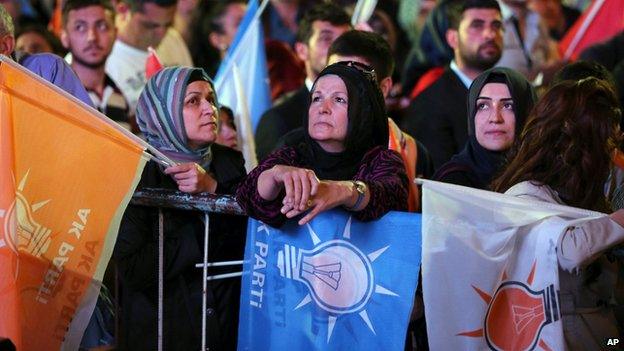
Despite winning 41% of the vote, it was the AK Party's worst ever result in an election
In a week before the election, Turkish TV carried 44 hours of Recep Tayyip Erdogan speaking in public.
Last night, after the results came through, he was nowhere to be seen.
The absence and silence of Turkey's ubiquitous president spoke volumes. He - and the AK Party that he co-founded - had their worst ever election.
The once unstoppable party lost its majority after 13 years and is now struggling to form a government.
It may cobble together a coalition with the nationalist MHP. It might alternatively try to form a shaky minority government.
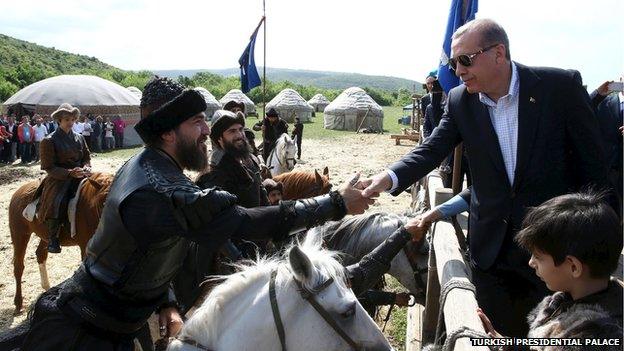
President Erdogan was visiting a TV set on Sunday but did not appear himself on election night
Or it will become the onlookers as the opposition parties join forces to keep the AKP out of power.
Failing it all, Turkey will be pushed into fresh elections within weeks.
Mr Erdogan's dream of securing the majority to change the constitution from a parliamentary to a presidential republic, extending his powers, is now all but dead.
What caused the AKP's bloody nose? "To a large extent, it was a rejection of Erdogan's presidential ambitions," says Sinan Ulgen of Turkey's Edam think tank, external, and a visiting scholar at Carnegie Europe.
"It was much more about Erdogan's desire to concentrate power in his own hands than about the AKP.
"But it was also a message to the party about a flagging economy and inconclusive peace with the Kurds.
"By starting that process, the AKP lost support to the nationalists. But by failing to fulfil it, it lost to the pro-Kurdish party."
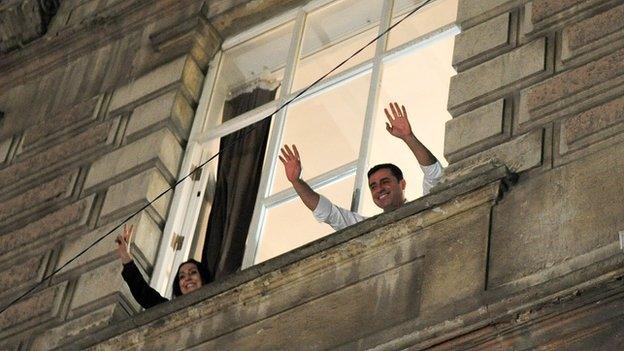
The HDP has broadened its appeal under its two young co-leaders
The Kurds were the ones celebrating well into the night.
Their party, the HDP, took a big gamble running for the first time, hoping to cross Turkey's high 10% parliamentary threshold. But it paid off, winning 13% of the vote and 80 MPs.
Under its charismatic male and female leaders - a symbol of the party's focus on gender equality - it has broadened its appeal beyond the Kurdish minority, drawing in leftists delighted by its promotion of gay rights and green issues - and staunch Erdogan opponents, voting tactically.
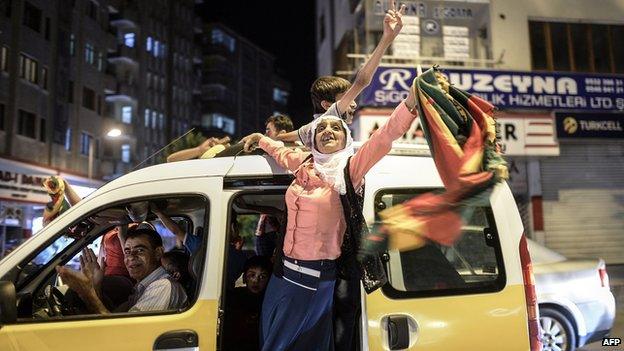
There were celebrations in Diyarbakir following the HDP's success
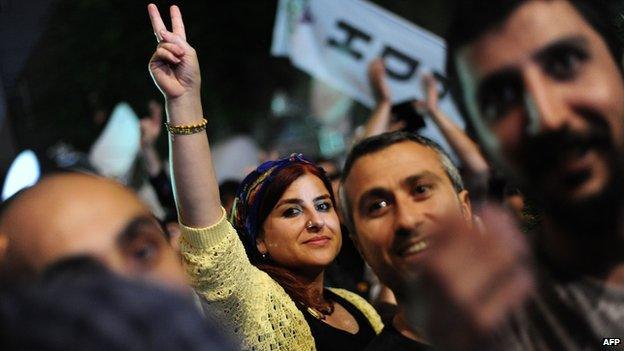
The pro-Kurdish party has gained parliamentary seats for the first time
It means the Kurds, long suppressed by successive Turkish governments, finally have a significant voice on the national stage - and makes the prospect of lasting peace in Turkey's south-east far brighter.
So what of the other changes now likely? Turkey's coalition-wrangling and potential political instability will turn the focus, for a time at least, to domestic, rather than foreign policy issues, says Sinan Ulgen:
"If the AKP is either forced out of office or again fails to win a majority in fresh elections, Turkey's much-criticised policy of supporting Islamist factions in the Middle East could change, and the country may take a more pro-Western approach, particularly if the major government player is the [centre-left] CHP."
The AKP's failed aim of "zero problems with neighbours" has been mocked by critics for becoming "zero neighbours without problems", relations soured with Israel, Egypt and Iran - as well as the United States, which has had a stormy relationship with President Erdogan.
The country's diplomacy could now see a change - and the HDP will push for a softer line towards Syria's Kurds too.
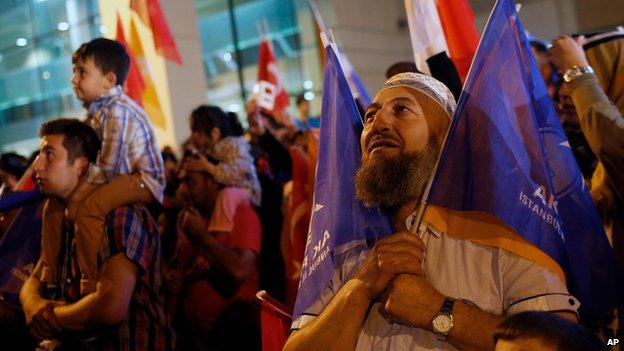
The AK Party had hoped to secure a large enough majority to change the constitution
This is potentially a new political era in Turkey.
The AKP still won this election, with over 40% of the vote - a share of the vote that parties in any democracy would crave.
It still has a substantial power base, mainly of the more religious, conservative Turks, who feel liberated by the party and the president.
But the AKP's dominance, the one-man political show that has played out in Turkey for 13 years and polarised this nation, has just taken a very big kick.